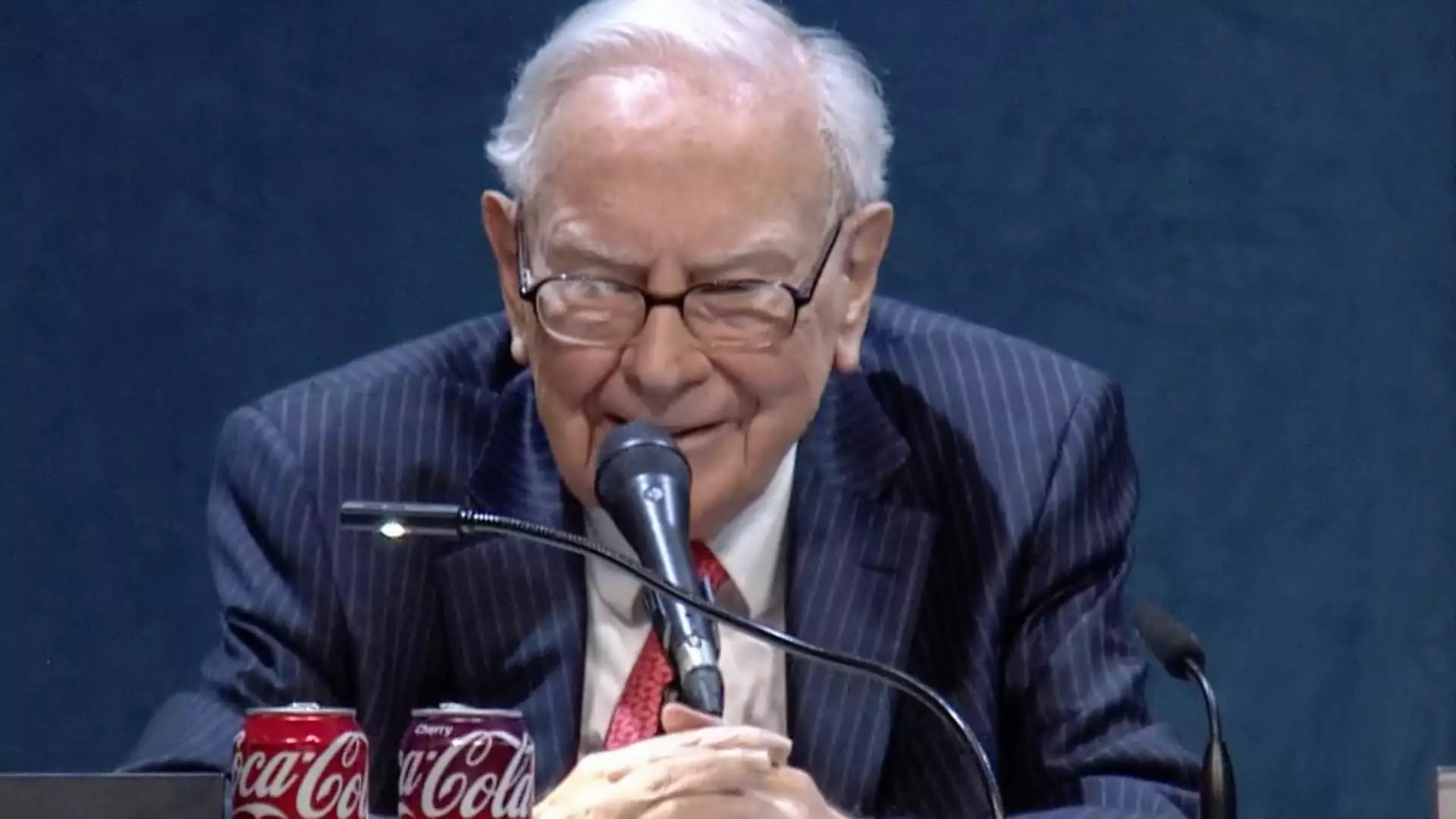Warren Buffett’s Berkshire Hathaway has always been a beacon for investors, guiding them through the complexities of the market with the wisdom of its founder. However, the latest financial report brings with it a cloud of uncertainty and concern. The company recently reported a staggering 64% drop in net earnings for the first quarter of 2024, raising eyebrows about the future of this conglomerate known for its robust portfolio. The sheer scale of this decline doesn’t just signal a blip on the radar; it poses serious questions about the sustainability of Berkshire’s varied interests in a jittery economic climate.
Operating earnings, a crucial indicator of a company’s health, fell from $11.22 billion in the first quarter of 2023 to $9.64 billion in 2024. The ramifications of this dip extend far beyond mere statistics; they serve as a warning sign that the road ahead may be rockier than anticipated. As operating earnings per share plummeted to $4.47 from $5.20, the discrepancy from analysts’ estimates raises a critical point about the reliability of forecasts in an increasingly volatile market. The gap between anticipated and actual earnings presents a reality check, challenging the core assumptions underlying Buffett’s famously optimistic investment philosophy.
Insurance Under Pressure
The most alarming aspect of this earnings report is the almost 49% drop in insurance-underwriting profit. This isn’t just a minor setback; it’s a clear indication that even the pillars of Berkshire’s business model are showing signs of distress. Capable of absorbing shocks during economic downturns, the insurance sector’s struggles reveal a vulnerability exacerbated by unforeseen events such as the devastating Southern California wildfires that accounted for a $1.1 billion loss. These disasters emphasize a critical juncture where climate change intersects with business operations, straining profit margins in industries once perceived as recession-proof.
Moreover, the report indicates that the geopolitical climate—namely, President Trump’s tariffs—has compounded these challenges. The uncertainty stemming from trade policies is not merely a political talking point; it directly impacts Berkshire’s profit margins. As the company stated, “the ultimate outcome of these events” remains unpredictable, leaving Berkshire at the mercy of forces beyond its control. Such uncertainty fosters a landscape where even the most seasoned investors find themselves guessing about the fluctuating factors that influence not just earnings reports but the very foundation of their investments.
The Turbulent Currency Market
Another critical aspect of Berkshire’s recent performance is the impact of foreign exchange losses—an estimated $713 million. Currency fluctuations are often treated as peripheral concerns; however, for a conglomerate of Berkshire’s size and scope, they are far more consequential. This situation is inflected by the dollar’s diminishing value, which has brought about financial repercussions to the firm’s bottom line. The dollar index fell nearly 4% during the first quarter, while the yen saw an even sharper decline against the dollar.
Such dynamics raise intriguing questions about the interconnectedness of global markets. Investors are reminded that the fortunes of a giant like Berkshire can sway dramatically due to macroeconomic shifts far removed from its operational strategies. These external influences underscore the fragility of success, making it clear that even the most capable firms are beholden to the forces of global economics.
Cash Reserves: A Mixed Blessing
Interestingly, even amid declining earnings, Berkshire’s cash reserves ballooned to over $347 billion, a record high for the company. This might appear to be a silver lining in an otherwise bleak report, but one must also scrutinize why Buffett chose not to deploy this capital during a decreasing stock market. Berkshire’s position as a net seller of stocks for ten consecutive quarters raises questions: Is the company reacting prudently to a volatile market, or are they missing key buying opportunities?
This high level of cash can be interpreted in multiple ways; on one hand, it may serve as a buffer against downturns, but on the other, it could signal an unwillingness to take calculated risks. Buffett has built his reputation on investing during downturns, and this deviation from that philosophy invites skepticism even among his most ardent supporters. One must wonder if this long-term approach will hold firm in the face of shifting economic paradigms.
A Need for Transparency
Lastly, Berkshire’s call for investors to look beyond quarterly fluctuations is a familiar refrain. While it is true that short-term results do not define a company’s long-term trajectory, there is an inherent contradiction when such substantial variations become the narrative. The need for transparency about how these changes impact the business cannot be understated. Investors are not merely seeking reassurances; they crave insightful analysis that connects operational results with strategic decision-making.
As tariff uncertainties and geopolitical risks loom, Berkshire Hathaway faces a daunting task of navigating its substantial portfolio while reassuring its investor base. The health of this economic titan hangs in a delicate balance, and only time will reveal how it responds to the myriad challenges on its horizon.

